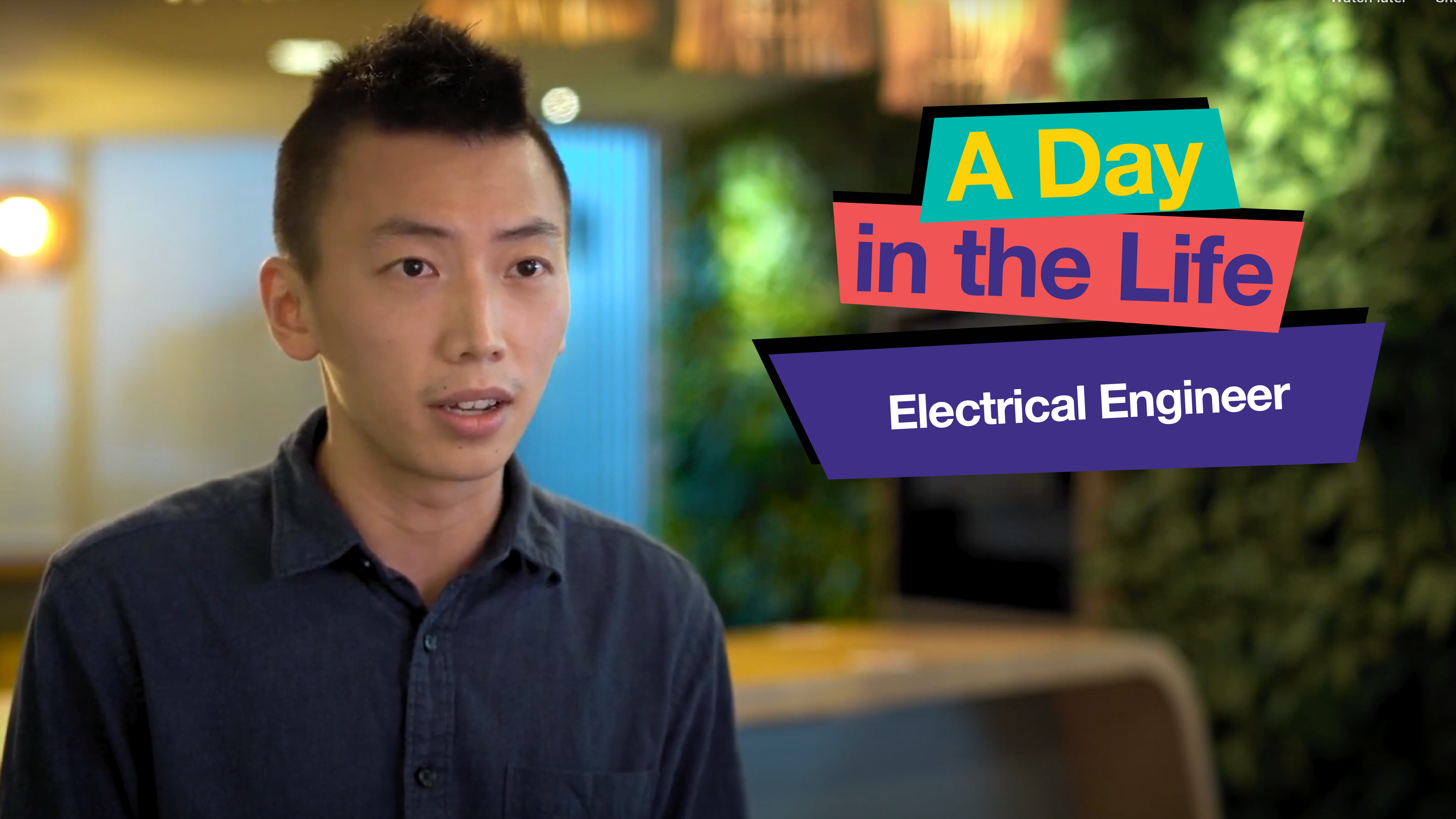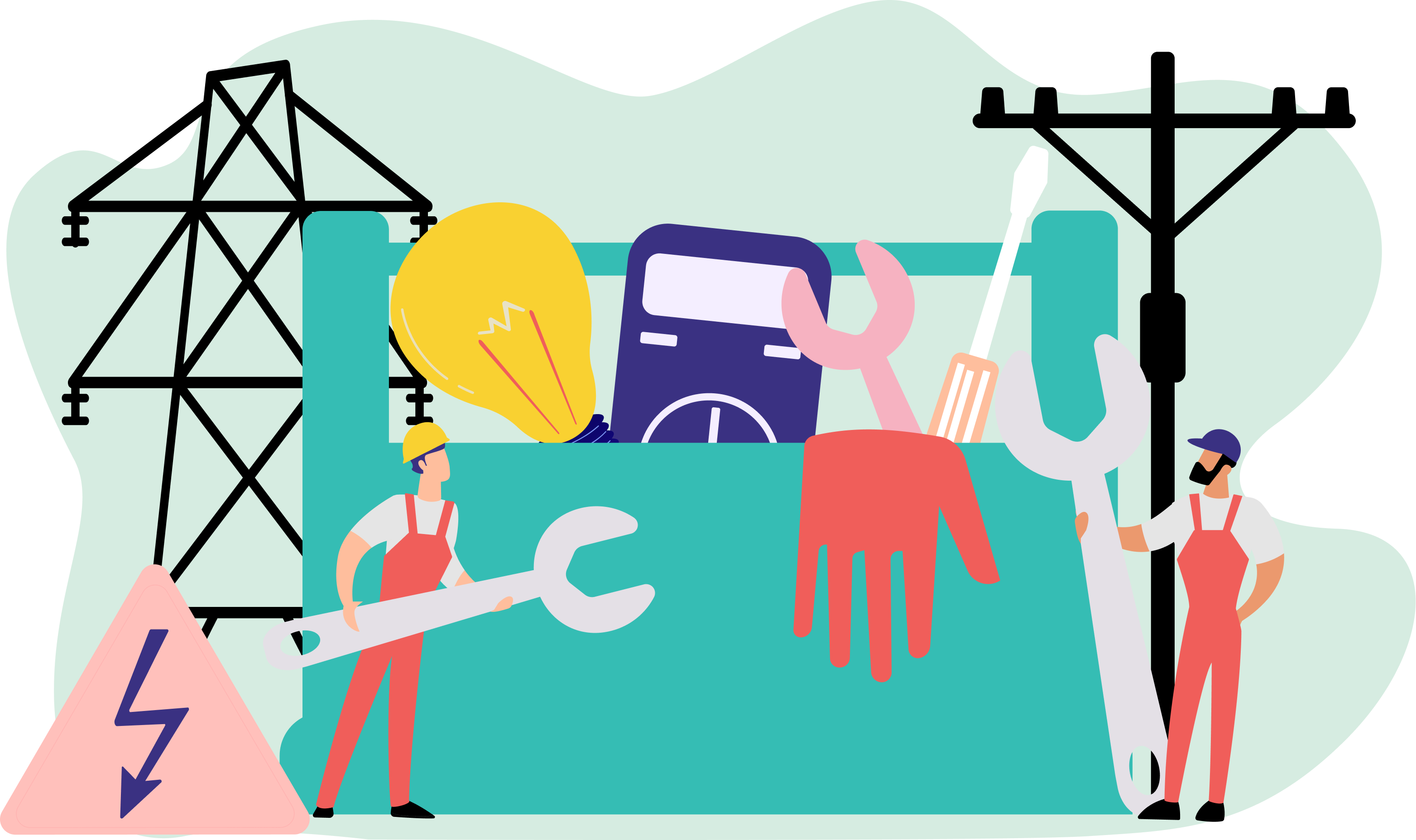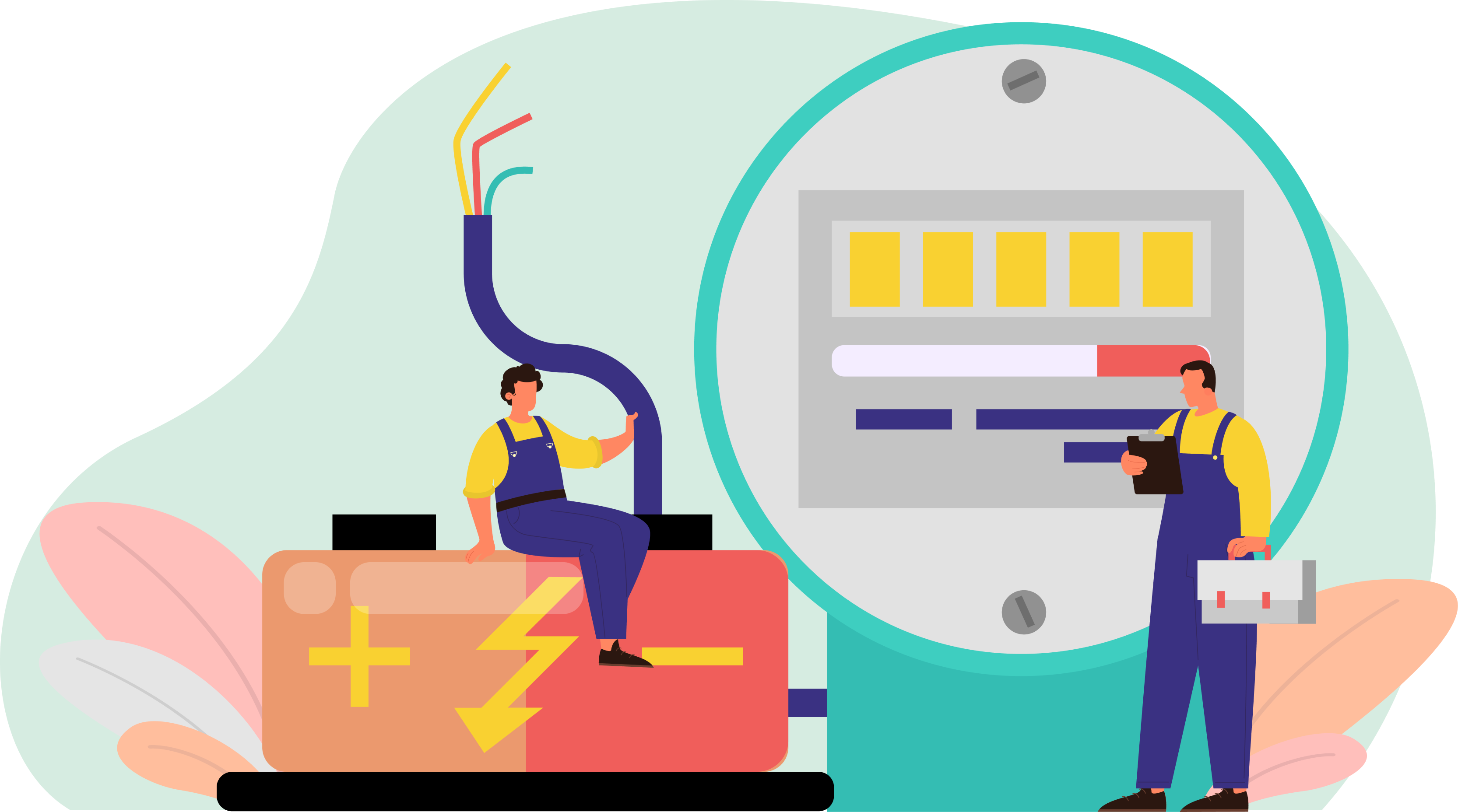
Electrical Engineers work with many different electronic devices. They design and make new electrical equipment and systems, to solve problems and test equipment.
Electrical Engineer Job Description
- Design and develop innovative ideas into functional prototypes and electrical products.
- Troubleshoot and meticulously analyse symptoms, conduct diagnostic tests, and implement solutions to restore electrical functionality across electrical systems and applications.
- Monitor day-to-day operations development and ensure that projects are on schedule.
- Interpret designs, specifications, and procedures to carry out electrical work according to safety regulations and industry standards.
- Review and set an organisation's electrical safety standards.
Note
In Singapore, all electrical work must be carried out by licensed Electrical Workers.
What you should know about Electrical Engineer jobs in Singapore
Nature of Work
As Electrical Engineers, you will design and create new electrical products, while Electricians deal with repairs or replacements.Key advice
You should stay abreast of the latest technological advancements and industry standards. Focus on emerging areas like renewable energy.-
Entry RequirementsEntry Requirements
- A diploma or bachelor's Degree in Electrical Engineering is preferred.
- A licence as an Electrical Engineer issued by the Professional Engineers Board (PEB) of Singapore.
-
Possible PathwayPossible Pathway
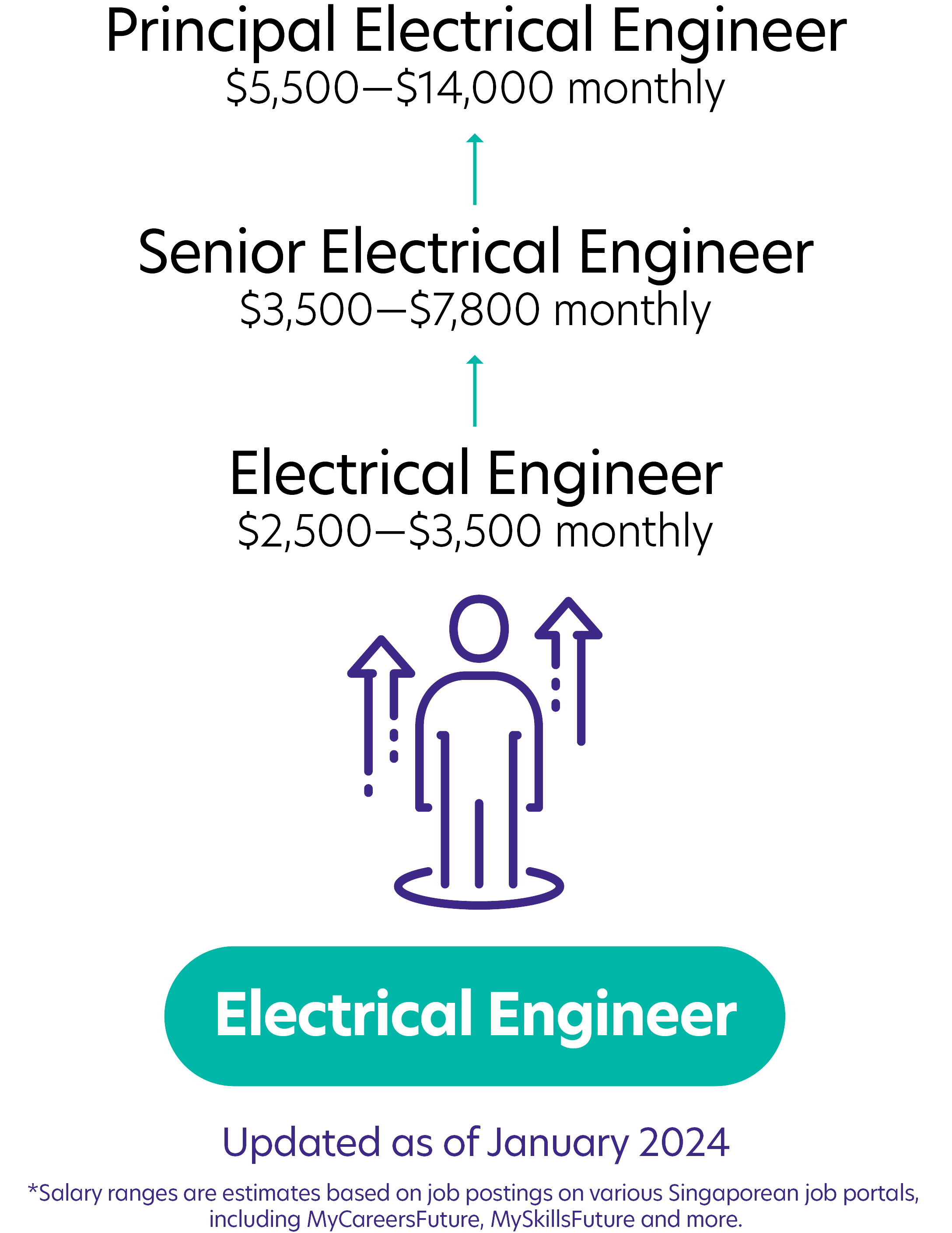
Skills you need to pursue an Electrical Engineer career in Singapore
Design for Manufacturing and Assembly
Creating electrical parts and systems that are cost-effective, easily made and assembled.Project Feasibility Management
Ability to judge if an electrical project is feasible and cost-effective.Electrical System Design
Creating detailed setups like circuits and power systems, while ensuring safety and efficiency.Problem-Solving
Strong problem-solving abilities to address and overcome technical challenges in Electrical Engineering projects.Communication
Effective communication skills to articulate complex electrical concepts to colleagues, clients, and stakeholders.Creative Thinking
Innovative approach to design and problem-solving for advancing technology and improving existing systems.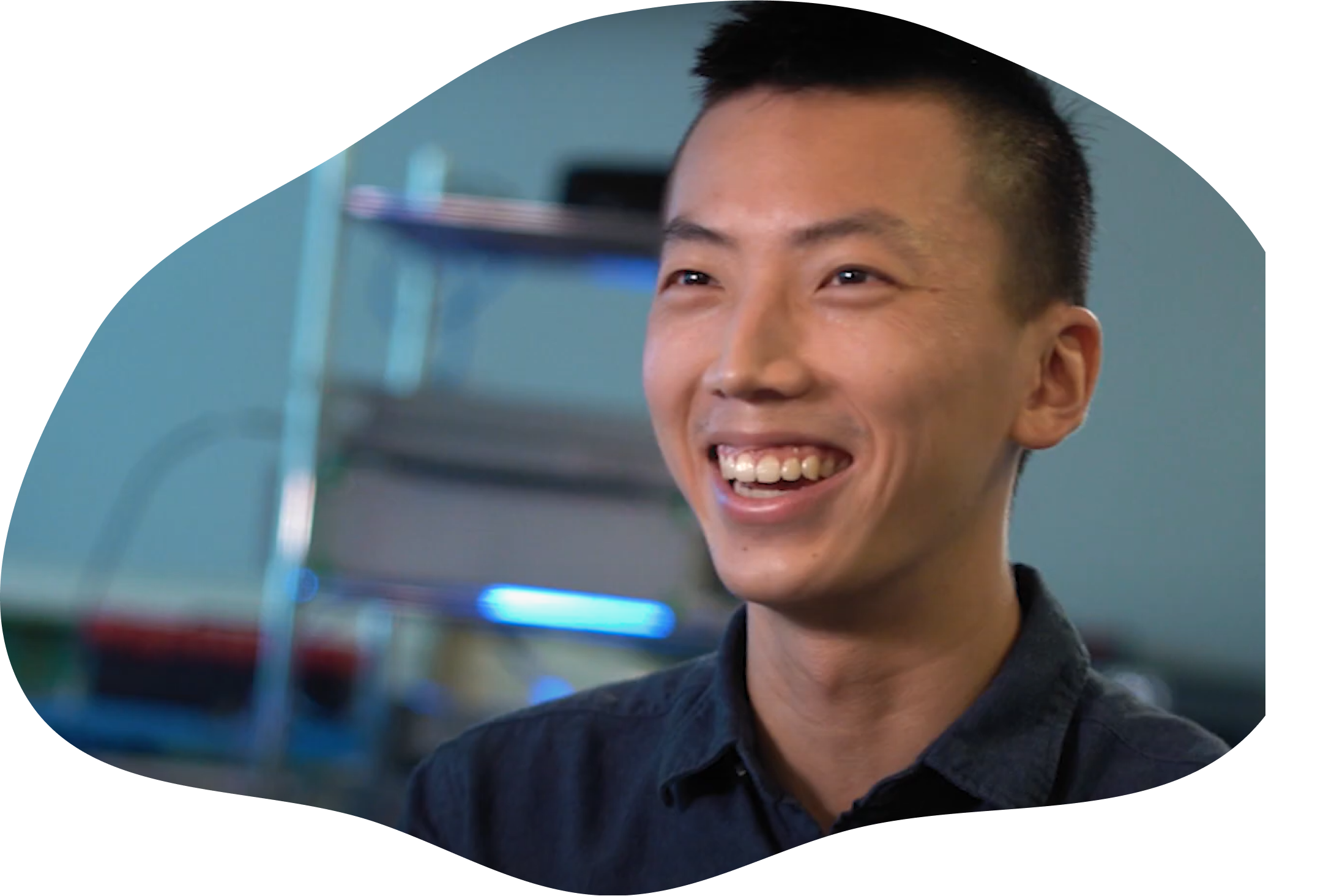
“Building complex systems requires teamwork but you should still be able to solve problems on your own.”
Gabriel, Electrical Engineer
Related Job Roles
Explore Other Programmes
Browse AllYou have bookmarked your first item!
Find it in My Discoveries with insights on your interests!

